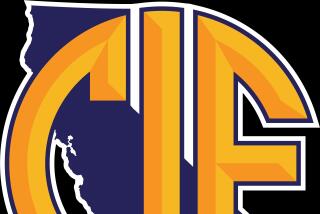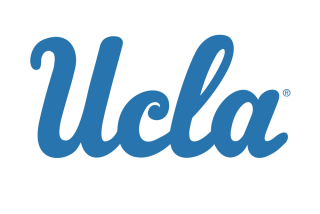Monitoring of club basketball leaves some cracks to slip through
- Share via
Reporting from Las Vegas — Dinos Trigonis gets that the NCAA closely monitors club basketball this month.
It’s the NCAA’s approach the rest of the year that leaves Trigonis, a Long Beach-based club tournament organizer and coach, at a loss.
The NCAA does not subject high school teams or club events outside the July evaluation period to its certification process, which, among other safeguards, requires background checks for club coaches and attempts to curtail illicit contact with college coaches.
“If they are trying to eliminate or minimize whatever negative influences exist in that community, then why would they confine it to one month only?” said Trigonis, co-director of the Las Vegas Fab 48, one of three tournaments that have drawn about 1,000 club teams here this week. “Those influences are year-round. They’re not going anywhere.
“It’s like the city of Long Beach enforcing its street sweeping one month out of the year.”
Sandra Parrott, the NCAA’s associate director of basketball certification, said club events in other months are not certified because college coaches — whom the NCAA has jurisdiction over — cannot attend. The NCAA does not certify high school games, Parrott said, because they are subject to the rules of their respective governing bodies.
The NCAA eliminated the spring evaluation period a few years ago, forcing college coaches to take stock of the nation’s top club teams during a pair of 10-day windows, July 6-15 and July 22-31.
“What the NCAA really tried to do is have the recruiting go through the high schools, go through the academic year and have that be the biggest part of the recruiting process . . . to try to eliminate the influences of AAU basketball on these kids,” UCLA Coach Ben Howland said.
Howland said he would prefer to watch club teams for a few days in April, before they have started a nonstop procession of events that often leaves them fatigued by the end of July. Parrott said there have been discussions to restore the spring evaluation period.
On Friday morning, Howland sat among a scrum of college coaches who had gathered at Las Vegas Rancho High to watch Dream Vision play the Atlanta Celtics in a battle of two of the nation’s top club teams. While Duke’s Mike Krzyzewski, Kentucky’s John Calipari and other name-brand coaches in shorts and T-shirts dotted one side of the gym, fans jammed the other.
The coaches also had their own entrance to the facility and their own restroom, with a piece of paper taped to the door reading, “College coaches only!!!”
“What you don’t want is a walk-by,” Ron Montoya, director of the Adidas Super 64 tournament, said, alluding to the potential for chance encounters between the college coaches and players’ parents, agents or middlemen.
The separation of coaches and others is just part of the NCAA’s certification process for July club events. Other requirements include limits on the number of games played, roster restrictions on out-of-state players and background checks for club coaches.
“What has happened in the past, if there’s not a certification system, then it becomes the Wild West and the events are run poorly, kids are being played too much, they’re getting tired and hurt and it turns into a contact period instead of an evaluation period,” Parrott said. “All kinds of negative influences get in there.”
Parrott said she was among three NCAA officials at the Las Vegas tournaments Friday, with more on the way. Enforcement officers last year found one game being played outside in the desert heat. But they’re not operating only in gotcha mode, Parrott said.
“People think we’re out here to catch somebody doing something wrong,” Parrott said. “I spend most of my time talking to college coaches, kids and their parents, the event operators. That’s what we’ve encouraged the enforcement staff to do: Collect information about how the system works, what’s working with the recruiting process and what’s not working, what ways can the legislative process be changed to make the process better or more efficient.”
Trigonis said some of the July requirements, while well-intentioned, are misguided. Former NBA big man Michael Cage did not complete his certification requirements in a timely manner prior to the Fab 48, so he was not allowed to coach his son’s FBC Elite team.
“You want these guys [like Cage] to come in because they counter the bad people,” Trigonis said. “If you discourage them, you leave the terrain to the bad people. That’s what they’ve done.”
More to Read
Go beyond the scoreboard
Get the latest on L.A.'s teams in the daily Sports Report newsletter.
You may occasionally receive promotional content from the Los Angeles Times.











